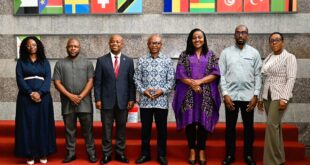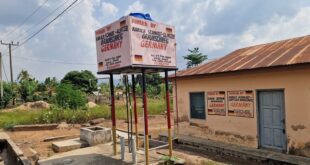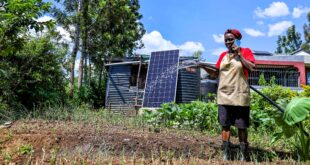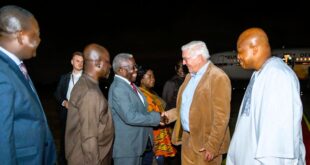The restoration of democracy with regular elections in the 1990s held the promise of resolving the explosive issue of power succession blamed for the conflicts that devilled post-independent Africa.
After independence in the 1960s, most of the ruling parties abolished multiparty democracy and instituted one-party states. The argument for the change was the promotion of stability, as the acrimonious contest for power was deemed divisive given the multi-ethnic and multi-religious character of most of the countries in the continent.
However, the one-party states instead of fostering stability became the reason or excuse for military intervention in African politics. Kwame Nkrumah of Ghana, Milton Obote of Uganda and several other leaders were overthrown by their militaries for sitting tight in office.
The economic problems of the 1980s caused largely by the introduction of structural adjustment programmes prescribed by the IMF and World Bank led to agitation for more democratic space in many African countries. The West and the multilateral institutions that it controls began to make aid conditional on democratic reforms by the end of the 1980s, a process that gradually promoted constitutional governance in the continent.
The one-party states that survived the wave of military interventions, such as Tanzania, Cameroon and Senegal, responding to domestic and international pressures introduced multiparty democracy with term limits for elected presidents in the 1990s. Also, military regimes under the pressure of the West also gave way to constitutional governments. The trend effectively promised to end the sit-tight syndrome in African leadership.
Sadly, a new trend has now set in whereby leaders once elected manipulate their parliaments to change the constitution to remove term limits. Uganda’s Yoweri Museveni, in power since 1986, was re-elected to a fifth term in February. He had two years earlier had the country’s constitution changed to enable him run again. “We don’t believe in term limit,” he said in an interview after his election victory, which opposition leader, Kizza Besigye, described as a sham.
Rwanda also held a referendum in July 2015 at which term limit was also jettisoned from the constitution. Effectively in power since the 1994 genocide, the latest constitutional change allows strongman Paul Kagame to continue to rule the country as long as he wishes.
It’s same story in the Republic of Congo where ostensibly at the behest of 72-year-old President Denis Sassou Nguesso, the parliament has voted for a referendum to review the constitutional restriction for a third term in office and scrap the age limit of 70 for a presidential candidate. Opposition parties in the country called it ‘a constitutional coup’ and Nguesso, who has spent 30 years in two separate tenures as president, sacked two ministers who came out publicly to oppose his third term plans.
Other leaders failed in their bid to effect a constitutional change to enable them run beyond the limits specified by their basic laws – Olusegun Obasanjo of Nigeria in 2005 and Boni Yayi of Benin in 2015. Abdoulaye Wade of Senegal and Pierre Nkurunziza of Burundi did not amend the constitution but only interpreted it according to their understanding, enabling them to contest for a third term. While Wade lost to Macky Sall by a very wide margin in 2012, Nkurunziza won the polls last year, plunging his country into an ongoing crisis.
Popular protests against an attempt to amend the constitution and remove term limit led to the revolution that ousted Burkina Faso’s Blaise Compaore in 2014. And President Yahya Jammeh who seized power in 1994 as a young army lieutenant says imposing a two-term limit on the presidency is “very un-African.” In May 2015, he and President Faure Gnassingbe of Togo vetoed plans by the regional bloc Ecowas to restrict West African presidents to two terms in office. Gnassingbe had just won his third term in office a month before the meeting.
The very promise of democracy to end the sit-tight syndrome of African leaders and regulate the power succession process as an antidote to interethnic conflict in African politics seems to being gradually defeated. Burundi’s conflict caused by Nkurunziza’s re-election has assumed a Hutu-Tutsi character, threatening to re-enact the tragedy of the 1994 genocide in Rwanda.
All is not gloom as there’re some positive examples on the issue of term restriction. A two-term limit on the presidency – lifted in 2008 to allow President Abdelaziz Bouteflika to run for a third time – will be reintroduced in Algeria. The parliament of the North African country passed a package of reforms in February that also included the creation of an independent electoral commission and explicit guarantee of the freedoms of assembly and the press.
Also, Senegal will hold a referendum on a package of constitutional changes, including a shorter presidential term of five years, although they will only take effect after the current seven-year mandate of President Sall runs out in 2019.
Some scholars say restricting term limits and reducing term duration are not suitable for Africa’s development because they don’t give a leader enough time to carry out substantial and lasting development legacies. A reason touted by Obasanjo’s third term supporters during the debate in Nigeria in 2005/6. Others believe that changing constitutions according to the whims of those in power will not allow constitutional rule to establish long roots in the polity, hampering social, political and economic development in the long run.
While there may be merit in increasing term duration, limits to the terms that a leader can spend in power is useful in Africa as it makes the rotation of power possible. Like the Nigerian political scientist Agaptus Nwozor argues, monopolisation of power provides “an incentive for antagonistic politicking” which invariably leads to the ethnicisation of power contest. Such a process if not well managed could lead to ethnic conflict and civil wars.
The violence that followed the victory of former President Goodluck Jonathan of Nigeria at the 2011 general election is attributable to regional grievance. The northern elite accused the then ruling PDP of jettisoning an arrangement that was put in place after the restoration of democracy in 1999 whereby presidential power will alternate between the North and the South. “The leadership question in Nigeria revolves around the possibility of every indigenous ethnic group ascending to the presidency,” Nwozor posits.
It is therefore important, many argue, that term limits are retained in constitutions to provide for the possibility of power rotation as a way to promote peaceful power succession process in Africa.
Henry Anozie
 THE AFRICAN COURIER. Reporting Africa and its Diaspora! The African Courier is an international magazine published in Germany to report on Africa and the Diaspora African experience. The first issue of the bimonthly magazine appeared on the newsstands on 15 February 1998. The African Courier is a communication forum for European-African political, economic and cultural exchanges, and a voice for Africa in Europe.
THE AFRICAN COURIER. Reporting Africa and its Diaspora! The African Courier is an international magazine published in Germany to report on Africa and the Diaspora African experience. The first issue of the bimonthly magazine appeared on the newsstands on 15 February 1998. The African Courier is a communication forum for European-African political, economic and cultural exchanges, and a voice for Africa in Europe.



































